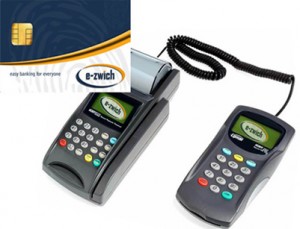Electronic point of sales devices to curb tax evasion – Ministry
 The introduction of electronic points of sales devices to be deployed by the third quarter of 2017 will curb tax evasion and improve revenue collection under the VAT system, Mr Daniel Nuer, Head of Policy Unit, Ministry of Finance has said.
The introduction of electronic points of sales devices to be deployed by the third quarter of 2017 will curb tax evasion and improve revenue collection under the VAT system, Mr Daniel Nuer, Head of Policy Unit, Ministry of Finance has said.
Government, he said would carry out the full implementation of the Excise Tax Stamp Act, 2013 (Act 873) to boost revenue collection and curtail under-invoicing and smuggling.
Mr Nuer, said this at a post budget seminar in Accra, organised by the Ministry of Finance in collaboration with the Ghana Revenue Authority (GRA) and Gesellschaft Fur Internationale Zusammenarbeit (GIZ).
Mr Nuer said the introduction of the transfer pricing unit of the GRA would be strengthened to undertake rigorous audits of multinational companies.
He explained that the basis of taxation was to provide government with the funds needed to invest in development, promote the welfare of the citizenry and to finance its activities.
“Taxation serves as an alternative to aid dependence and provides fiscal reliance and the sustainability needed to promote economic growth”, he added.
Mr Nuer noted that tax policy should be designed in a way that, they will impose minimal cost on the productive sectors of the economy, since they serve as an engine of growth.
He said the tax policy direction of the budget was to strike the right balance between domestic revenue resource mobilization for development and designing an attractive tax regime that promotes domestic and foreign investment.
Mr Nuer stressed that government had remove the one percent special import levy, which was imposed mainly on imported raw materials and machinery to reduce the cost of production and make local goods more competitive.
He said government had abolished the 17.5 percent VAT/NHIL on selected imported medicines not produced locally to reduce the cost of health care and allow citizens to easily access health services.
“Government had removed the excise duty on petroleum in order to reduce the excess burden on final consumers. The special petroleum tax rate was reduced from 17.5 percent to 15 percent in order to mitigate the excess burden on final consumers”.
He said government has reviewed the energy sector levy to reduce the cost of power which was not only a major factor for production but also an essential requirement for everyday living.
“Government has embarked on a comprehensive review of the regime on import duty exemptions and tax reliefs with a view to eliminating abuses and improving efficiency in the applications of these incentives”.
Mr Lawrence Hotsonyame said the Commissioner-General was obliged to set up a Taxpayer Identification Numbering (TIN) System for the purpose of identification of tax payers; and promoting tax compliance.
The TIN was necessary to help clear any goods from any port or factory, register any land title to land, interest in land or any document affecting land and obtain any Tax Clearance Certificate from the GRA.
Mr John Vianney Kuudamnuru, the Commissioner, in charge of Customs Division of GRA said the Authority will collaborate with the Ministry of Finance and GIZ to improve on education on the new policies in the 2017 budget.
Source: GNA
